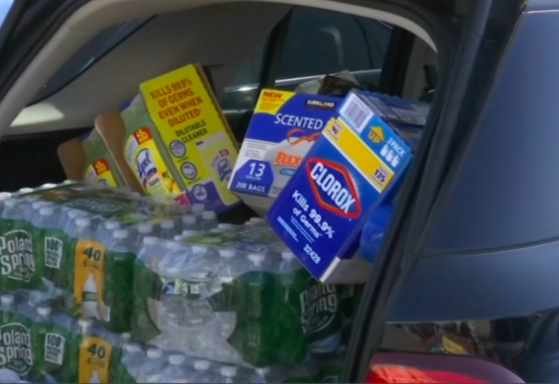Why ‘Price Gouging’ Actually Helps During a Crisis
Authored by Bradley Thomas via The Libertarian Institute,
As the coronavirus panic heightens, the price of items like hand sanitizer and medical face masks – to the extent they are still available – are skyrocketing.
CBS News reported last week that “Online, sales of virus protection products have skyrocketed, up 817% in the last two months. Two large bottles of Purell hand sanitizer were on sale for $299 on Amazon. That size normally sells for about $9 a bottle. Another listing, for four boxes of masks, is usually about $20 — it was being sold for more than $1,000.”
In response, some state governments have already vowed to punish “price gouging.”
“California’s attorney general told businesses that if they violated price gouging laws, ‘You’d better be prepared to pay the price for your lawbreaking.’ New York City is issuing $500 fines to any stores found price gouging, starting this week,” CBS reported.
Indeed, even the Department of Justice issued a warning that they “stand(s) ready to make sure that bad actors do not take advantage of emergency response efforts, healthcare providers, or the American people during this crucial time.”
The trade group The Consumer Brands Association praised the DOJ’s response, saying “We appreciate the Department of Justice’s swift response to Consumer Brands’ request to combat price gouging and ensure American consumers have access to critical products at affordable prices.”
But does preventing ‘price gouging’ during times of distress actually help ensure that critical products will remain available at affordable prices? Basic economics tells us no.
Price controls in times of emergency have negative consequences, just as they do during normal times. When prices aren’t allowed to move in response to changing economic conditions, those who most urgently need these critical items will likely find the shelves empty.
In the current situation, fear of the spread of the coronavirus has caused demand for virus protection items to skyrocket. But if the sellers of these items are not allowed to raise their prices out of fear of government punishment, the result will be that the first wave of customers will clear out all the available supplies.
During times of distress like this, people’s demand curves shift. They are now willing to buy more of a good (like hand sanitizer) at any given price. Without a higher price, the first buyers will stock up, leaving no supplies for others in need. There is no incentive to economize; in fact there is incentive for those first in line to buy up more than they actually need to potentially take advantage of shortages and make a profit by selling to those willing to pay a higher price in the black market.
If prices are allowed to rise to reflect the greater urgency of demand, however, consumers will limit their purchases to just what they truly need. Those first in line will be far less likely to clean out the shelves, but rather buy the minimum amount needed to ride out the virus scare.
I’m w/ Prosecutor @JakeHudnut + JCPD issuing tickets for price gouging. We won’t accept people taking advantage of residents. Tissues, Clorox, cleaning items, all doubling +. Rubbing alcohol went from $2.99 to $6.99. People sometimes can be terrible in how they treat eachother.. pic.twitter.com/GarSAkAW35
— Steven Fulop (@StevenFulop) March 12, 2020
As a result, more people will be able to acquire at least some of the highly-valued products, and supplies are more likely to be available to those who most urgently need the product. As Robert Wenzel at EconomicPolicyJournal.com wrote:
“If someone wants to buy a mask to travel by subway to go to a movie and the mask is $200, the consumer might think twice and not buy the mask, thus leaving it for someone else. At the same time, a heart surgeon may want to buy a mask to travel the same subway to perform heart surgeries. He might be very willing to pay $200 for a mask.”
Moreover, freely adjusting prices send important signals to producers about the intensity of demand, providing incentive to suppliers to devote more resources to the production and distribution of the critical items in such high demand.
Manufacturers of masks and hand sanitizer will be willing to outbid manufactures of other products for the inputs they need to produce the finished product. They may also be willing to invest in more speedy delivery mechanisms to more quickly acquire their needed inputs so that they can increase supplies in a shorter time frame.
Allowing for prices to freely adjust to market conditions sends vital signals both to consumers to economize and producers to marshal resources to increase supply. Shortages will be avoided and the most urgent needs will be met.
Emotions are running high during the current panic. Part of the emotional response is directed at sellers of critical items like hand sanitizer and medical masks, who are seen as exploiting the desperation of the situation. But government price controls will create shortages, causing those who most urgently need such products, like medical personnel, to do without.
As usual, when the government interferes in the market, they can only make a bad situation worse.
Tyler Durden
Fri, 03/13/2020 – 20:45
via ZeroHedge News https://ift.tt/33j2zDq Tyler Durden
